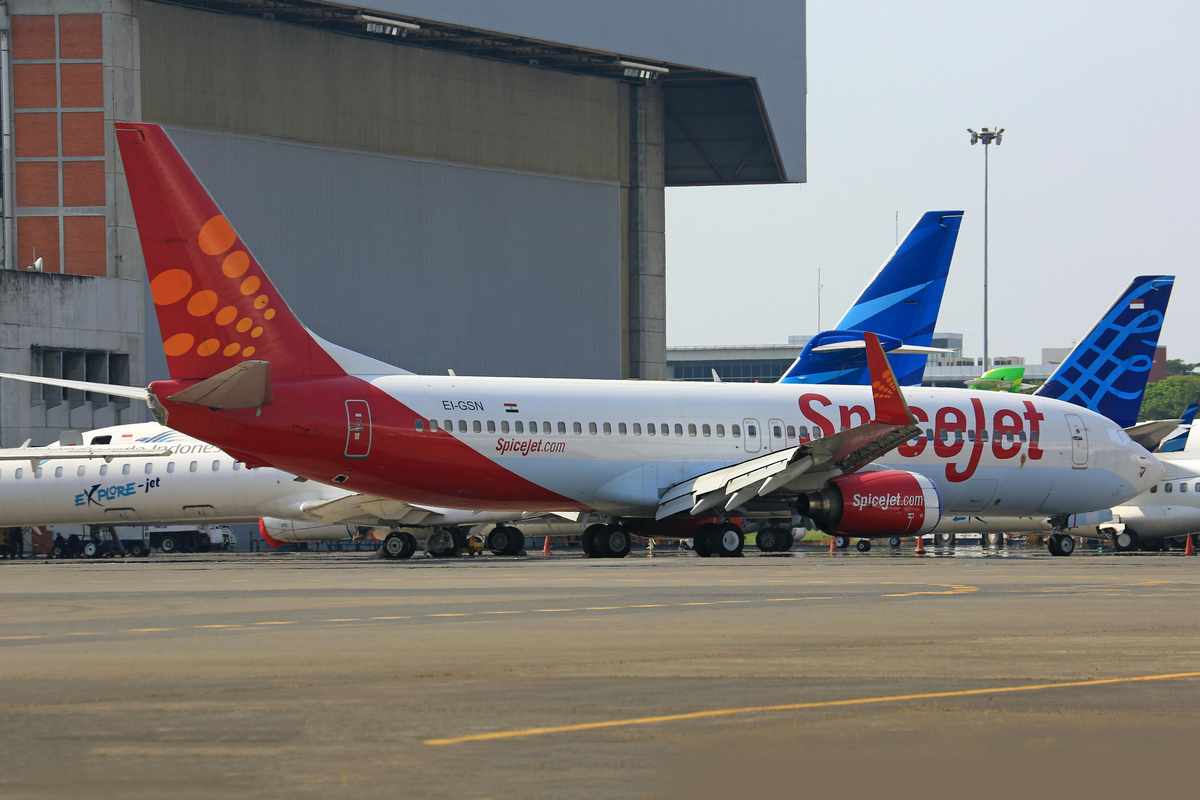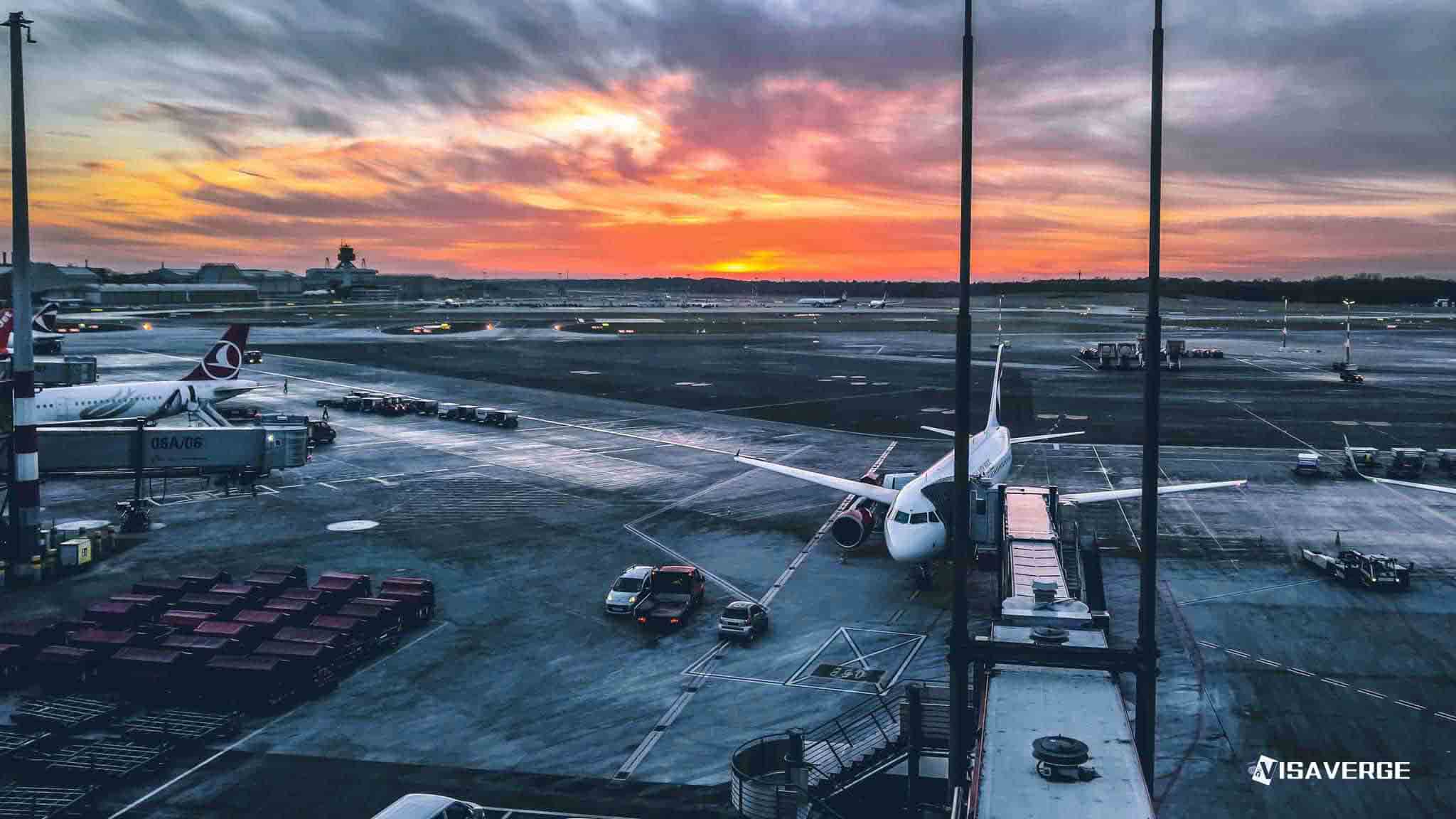Key Takeaways
- Indian students on F-1 visas quit part-time jobs fearing deportation and stricter U.S. immigration enforcement under potential policy changes.
- Financial pressures grow as students face high education costs, relying on savings, loans, and cutting expenses to manage.
- Mental health struggles rise, with students prioritizing visa compliance, sacrificing income, and seeking clarity on immigration policies.
Indian students 🇮🇳 in the United States, many of whom are on F-1 visas, are facing a challenging decision. With fears of stricter immigration enforcement under potential future policies by President Donald Trump, a significant number of these students have chosen to quit their part-time jobs. The jobs, often essential for covering basic expenses like rent and food, have become a source of anxiety due to concerns about deportation or losing visa status.
The F-1 visa is designed for international students pursuing full-time academic programs in the U.S., and it permits working up to 20 hours per week on-campus. However, to cope with financial pressures, many students work off-campus without authorization, putting them at risk. The current climate of potential random checks and stricter rule enforcement is now forcing them to take an extreme step—giving up these jobs to protect their future.

Financial Burdens Weigh Heavy
For most Indian students in the U.S., education comes at a high cost. Tuition fees, housing, and living expenses can run into tens of thousands of dollars each year. Many students take out significant loans to pay for these costs. This makes quitting part-time jobs especially difficult.
A graduate student from the University of Illinois shared his story, saying, “I used to work at a small café after my college hours, earning $7 per hour for six hours a day. But I quit last week after hearing about potential crackdowns on unauthorized work. I can’t afford to take risks, especially with $50,000 in student loans.” His decision reflects that of many who are giving up essential income to avoid jeopardizing their legal status.
Another student, studying computer science in Texas, revealed the depth of his financial struggles. “I’ve already used up most of my savings and started borrowing small amounts from my roommate,” he said. This dependence on savings or even loans from friends and family has become common as students adjust to life without their part-time jobs. While these temporary solutions may help, they come at a considerable emotional and financial cost.
Mental Health Challenges Rising
The pressure is not only financial. Many students on F-1 visas are experiencing heightened stress and anxiety due to uncertainty about their future in the U.S. The fear of deportation and the burden of student loans have created a mental health crisis for some Indian students.
Trying to balance academics with financial challenges, some feel overwhelmed. According to one student, “The risk of losing everything my parents and I have worked for is too high. Every day feels stressful as I think about how to manage my expenses without breaking any rules.”
Such mental strain shows the wider impact of these immigration policies. It is not just about compliance with the law; it is about the emotional toll these decisions take on young lives.
Prioritizing Legal Compliance Over Income
Despite the considerable difficulties, many Indian students are committed to following visa rules, even at a high personal cost. A master’s student based in New York explained her reasoning: “We’ve heard talk about random checks at workplaces. So, my friends and I have decided to stop working for now. It’s hard, but we don’t want to risk deportation or losing our student visa status. My parents have already sacrificed too much to send me here.”
This focus on compliance reflects the significant risks associated with not following immigration laws. Violating terms of the F-1 visa, such as working off-campus without permission, could lead to immediate deportation or bans on re-entry into the U.S., effectively ending the students’ academic and career ambitions.
Adjusting to a New Normal
The loss of part-time jobs has prompted Indian students to make significant changes to their daily lives. This involves finding creative and sometimes extreme ways to minimize expenses. For some, this has meant sharing accommodations with additional roommates to reduce rent. Others rely more heavily on campus resources like libraries, computer facilities, and dining halls.
Social activities are another area where cuts are being made. Students are skipping nights out and dining at cheaper places or even cooking at home to save money. These adjustments reflect a determination to cope with the situation, even while under financial and emotional strain.
Short-Term Decisions, Long-Term Uncertainty
For many, this decision to quit part-time jobs is seen as a short-term solution. Students hope to return to work once there is clarity on immigration policies. However, the longer they remain without income, the harder it becomes. Families in India 🇮🇳, already stretched thin by funding their children’s education, might not be able to provide support indefinitely.
For others, the situation has led to even bigger questions about their future in the United States. With dwindling resources, some might consider transferring to universities in other countries or even returning to India to continue their studies. These decisions could have a lasting impact on their careers and life plans.
Potential Ripple Effects on Education and Business
The challenges faced by these students are not isolated incidents. They could affect broader trends in international education and even local economies in the United States. Indian students make up a substantial proportion of the international student population in the U.S., and their contributions through tuition and spending are vital to many universities and economies.
If stricter policies deter students from seeking education in the U.S., universities could face significant financial setbacks. Institutions that currently thrive on high enrollment rates of international students might have to revisit their funding models.
It doesn’t only end with universities. Many local businesses, especially in college towns, rely on students working in part-time roles. Whether it’s cafes, convenience stores, or other establishments, the absence of this workforce could have economic consequences.
What Lies Ahead?
With so much uncertainty, many are calling for better communication from immigration authorities. Clearer guidelines regarding what is permissible for F-1 visa holders would ease concerns for students. Additionally, universities might have to step in with solutions, such as creating more on-campus job opportunities to ensure students can support themselves without breaking visa rules.
Changes might also come from within the affected communities. Some students have started forming informal support groups to share resources and advice about staying compliant while meeting daily needs.
For now, many Indian students are focused on survival—continuing their education while doing everything possible to remain within the law. Analysis from VisaVerge.com indicates this situation remains a hot topic, affecting not only students but also policymakers, educational institutions, and even local businesses.
Conclusion
The situation Indian students face in the U.S. highlights how immigration policies intersect with everyday life. By quitting their part-time jobs, these students show a commitment to following the rules of their F-1 visas, even when it comes at great financial and emotional cost. Yet, this solution is neither easy nor sustainable. As the months pass, more will rest on how immigration policies evolve and whether students can secure alternative forms of support.
For students, the hope is that these sacrifices will keep their dreams alive. For institutions and businesses, there is now a growing need to provide pathways that allow students to succeed while adhering to immigration laws. To learn more about the conditions and rules governing F-1 visas, you can visit the U.S. Citizenship and Immigration Services’ official page. For now, the journey for these students continues, filled with uncertainty but also a determination to succeed against the odds.
Indian students quit U.S. part-time jobs amid deportation fears
Many Indian students in the U.S. are giving up undocumented part-time jobs due to concerns over stricter visa enforcement under potential Trump-era immigration policies.
Why it matters: These jobs help students manage essential expenses like rent and food, but fears of deportation and losing visa status are forcing difficult financial and personal decisions.
The big picture:
– International students on F-1 visas are allowed to work only on-campus, up to 20 hours a week. However, many have depended on off-campus work at restaurants, gas stations, and retail stores to make ends meet.
– Concerns about random immigration checks and tougher enforcement are now driving students away from such employment.
By the numbers:
– A student from Illinois earning $7/hour for six hours a day shared he quit his job last week to avoid immigration risks, despite having $50,000 in student loans.
– Others report running out of their savings and borrowing from friends or family in India to stay afloat.
What they’re saying:
– “We’ve heard talk about random checks at workplaces. So, my friends and I have decided to stop working for now. It’s hard, but we don’t want to risk deportation,” a master’s student in New York told reporters.
– Another student from Texas said, “I’ve already used up most of my savings and started borrowing small amounts from my roommate. I don’t know how long I can sustain this.”
Mental health strains: The financial challenges and immigration fears are taking a toll on students’ mental health, leading to heightened anxiety and stress as they balance academics with these pressures.
State of play: Many students are cutting non-essential expenses, sharing accommodations, and relying on campus resources like libraries to lower costs, with some considering cheaper food and fewer social activities.
Between the lines: Compliance with immigration laws has become a higher priority than financial stability. Violating visa conditions could jeopardize their educational journey and future U.S. prospects.
Yes, but: While some universities are exploring more on-campus job options, the availability remains limited, leaving many students without viable alternatives for income.
The bottom line: Indian students face a fraught choice between financial hardship and visa compliance, reflecting the broader pressures of U.S. immigration policies on international education. Their decisions may significantly impact not just their futures, but also local economies and the global reputation of U.S. higher education.
Learn Today
F-1 visa: A non-immigrant visa for international students to pursue full-time academic programs in the United States.
Unauthorized work: Employment performed without legal clearance or approval, often violating terms of a visa or immigration status.
Deportation: The formal removal of an individual from a country for violating immigration laws or visa conditions.
On-campus employment: Jobs within a university’s premises, permitted for international students on F-1 visas, limited to 20 hours per week.
Immigration enforcement: Government actions taken to ensure compliance with immigration laws, including checks, penalties, or deportation.
This Article in a Nutshell
Indian students on F-1 visas in the U.S. face tough choices, quitting part-time jobs amid fears of stricter immigration audits. Balancing financial struggles, mental health, and compliance, many sacrifice income to protect their future. This highlights the urgent need for clearer policies and institutional support to sustain dreams without breaking laws.
— By VisaVerge.com
Read more:
• Indian Parents Denied Entry to US Under New Immigration Rules
• Schengen Visa for Indian Citizens on H1B in USA
• Indian Couples Rush for C-Sections to Secure Birthright Citizenship
• U.S. Ends Birthright Citizenship for Some: Over 1 Million Indians Affected
• Canada Reports 50,000 “No Show” International Students, Indians Top the List







